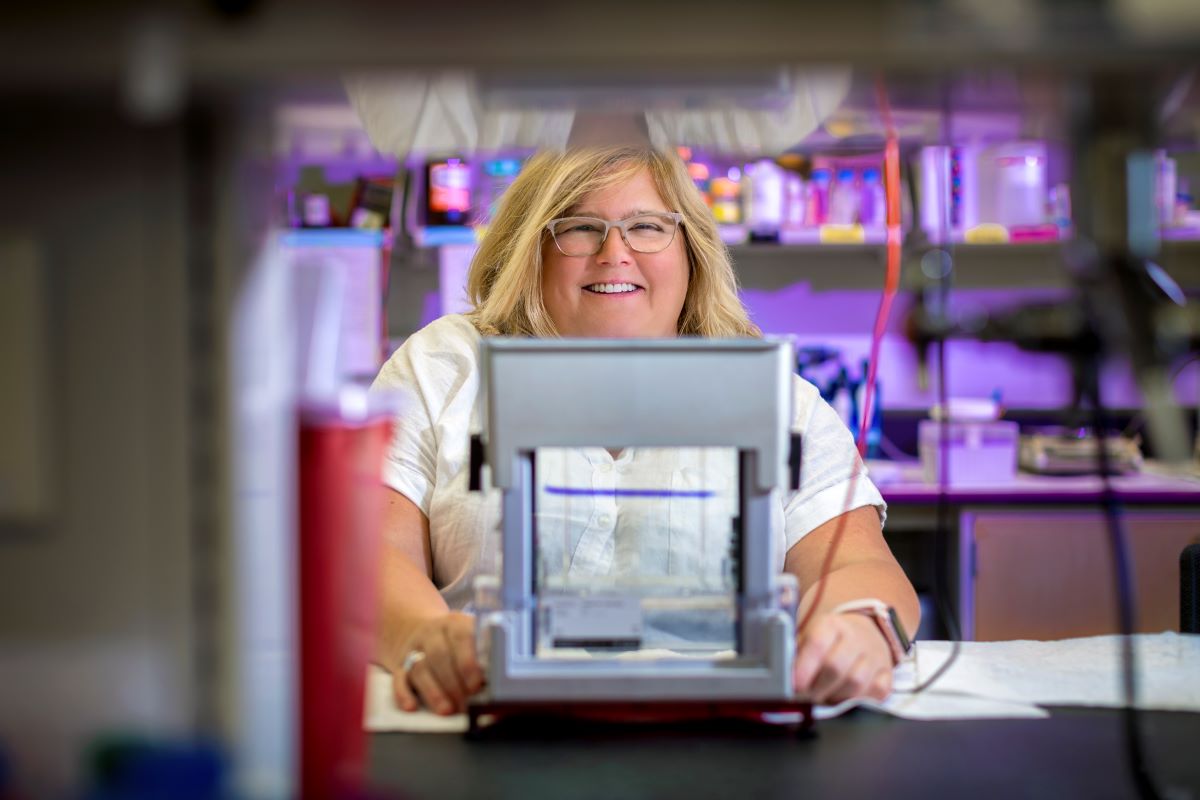Pennington Biomedical Awarded Renewal of NIH-funded Center to Advance Metabolic Disease Research and Train Future Scientists
October 22, 2025 · Baton Rouge, LA
Renewal represents a $10.9M NIH investment over five years expanding intellectual, scientific and technical infrastructure that enhances the study of metabolic components of disease states
 Following a competitive review process, the National Institutes of Health (NIH) funding
for Pennington Biomedical’s Metabolic Basis of Disease Center of Biomedical Research
Excellence (COBRE) was renewed for an additional five years. This Phase II renewal
builds on the momentum achieved since the center’s establishment in 2020, enabling
continued support for young scientists who are focused on the mechanisms through which
nutrition and metabolism contribute to health.
Following a competitive review process, the National Institutes of Health (NIH) funding
for Pennington Biomedical’s Metabolic Basis of Disease Center of Biomedical Research
Excellence (COBRE) was renewed for an additional five years. This Phase II renewal
builds on the momentum achieved since the center’s establishment in 2020, enabling
continued support for young scientists who are focused on the mechanisms through which
nutrition and metabolism contribute to health.
“The renewal of this center grant provides Pennington Biomedical with the opportunity to continue a metabolic disease research focus that benefits the state of Louisiana, which has a disproportionately high incidence of metabolic diseases,” said Dr. Jackie Stephens, Director and Principal Investigator of this five-year center grant.
This five-year renewal will provide approximately $2.2M per year to support three essential features for research:
- The center will provide direct research support for three junior researcher positions, with the goal of supporting multiple scientists through the program as they develop independence. When researchers successfully secure independent funding, they graduate from the program, creating opportunities to recruit additional early-career scientists in Louisiana.
- The center will directly support infrastructure related to Genomics, Bioimaging, and Preclinical Disease research. Competitive research is dependent on state-of-the-art equipment and expertise, and COBRE-funded infrastructure enables Pennington Biomedical researchers to stay at the forefront of their fields.
- The center will support a Pilot and Feasibility research program, providing direct support to early-stage ideas and discoveries.
“I’m proud of our faculty’s work in metabolic health research, and this NIH funding recognizes the importance of what we're building together. Our Metabolic Basis of Disease Center focuses on understanding the basic mechanisms that regulate metabolic health, research that’s vital as we work to address the obesity epidemic and its related illnesses,” said Dr. John Kirwan, Pennington Biomedical Executive Director. “This center will provide our researchers with state-of-the-art scientific cores and enhanced resources, while helping us mentor and develop the next generation of independent scientists. It’s about creating an environment where exceptional science can flourish.”
When the Metabolic Basis of Disease Center first launched in 2020, it marked a milestone for Pennington Biomedical and for the regional biomedical research landscape. That first phase laid a robust foundation: recruiting talented early-stage faculty, establishing shared-use cores, and supporting pilot projects that would catalyze independent funding.
The previous 5-year COBRE award supported seven researchers, who in that period generated over $6 million of independent funding as they established their independent research programs. Overall, the Metabolic Basis of Disease Center supports 14 professional jobs in Louisiana for five years.
“This renewal of our Metabolic Basis of Disease Center builds directly on our institutional strengths,” Dr. Stephens said. “Our two research cores, Molecular Mechanisms and Preclinical Research, provide scientists with advanced capabilities in imaging, genomics, bioinformatics, and disease modeling that are essential for understanding metabolic health.”
These cores are led by Drs. David Burk and Christopher Morrison, with strong support from Drs. Sujoy Ghosh and Michael Salbaum.
“Federal funding is extremely competitive. Louisiana is one of 23 states that are awarded less than 7 percent of all government biomedical research funding,” Dr. Stephens said. “To make our young people competitive, we have to provide them with additional skill sets and training. The first 5 years of the COBRE were extremely successful, supporting Louisiana scientists and recruiting new talent to Louisiana. We expect to continue this success with this renewal.”
During Phase II of the grant, the center will have a stronger emphasis on bioinformatics and will also establish a new Pilot and Feasibility Program to identify new research project leaders to promote metabolic basis of disease research. Approximately $150,000/year is available to fund two-to-four Pilot and Feasibility awards each year.
For more information on the COBRE Metabolic Basis of Disease Center, visit https://www.pbrc.edu/cobre.
For more information contact:
Joe Coussan, Media Relations Manager, joe.coussan@pbrc.edu, 225-763-3049 or Ernie Ballard, Senior Director of Communications & Marketing, ernie.ballard@pbrc.edu, 225-263-2677.
About the Pennington Biomedical Research Center
The Pennington Biomedical Research Center is at the forefront of medical discovery as it relates to understanding the triggers of obesity, diabetes, cardiovascular disease, cancer and dementia. Pennington Biomedical has the vision to lead the world in promoting nutrition and metabolic health and eliminating metabolic disease through scientific discoveries that create solutions from cells to society. The Center conducts basic, clinical and population research, and is a campus in the LSU System.
The research enterprise at Pennington Biomedical includes over 600 employees within a network of 44 clinics and research laboratories, and 16 highly specialized core service facilities. Its scientists and physician/scientists are supported by research trainees, lab technicians, nurses, dietitians and other support personnel. Pennington Biomedical is a globally recognized state-of-the-art research institution in Baton Rouge, Louisiana. For more information, see www.pbrc.edu.
Pennington Biomedical Research Center
6400 Perkins Road
Baton Rouge, LA 70808



